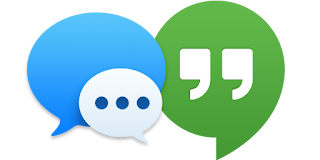Webstock – New Zealand’s Web Conference – Day 1
I had heard lots of great stuff about Webstock in previous years so decided to go along this year to experience it for myself. This is a very professional conference and has (mostly) excellent speakers covering a variety of Web related technologies.
Here’s my synopsis of Day 1.
Opening
Mike Brown (@maupuia)
-
You will fall in love with things that are made with love
Web Design that grabs people
Scott Thomas (@simplescott) – Design Director for Obama's campaign
-
Web and Print overlap in campaign
-
Deliver clear and concise messaging, focussed on the “We” rather than the “He”
-
Keep the message of hope while dismantling the notion of being aloof
-
Establish a consistency and balance to exemplify stability and experience
-
Persuading people was the mission of the home page therefore needed to be prominent, with localised information
-
Spend more time researching than design
-
Information architecture (inc. wireframes) is a key part of the design process but is often overlooked
-
The fold is dead
-
Recording speeches and putting up on Obama website with transcripts gave the power back to the politician not to major media.
-
The web is changing the way we interact, it is making the world smaller
-
Analytics are king. Track when people drop out of a process, how they are using a site etc.
-
No matter how complex or disorganised you think you are, understand that you can achieve great things when you have great people
Brian does the Andrew Sisters
Brian Fling (@fling)
-
“New Zealand is Yours Go there now” cheesy video clip
-
“Mobile Design and Development” O'Reilly book author
-
Context is important
-
Cost of supporting different mobile devices is high
Designing for Diversity – Inclusive Design & the User Experience
Liz Herrod (@scenariogirl)
-
Why are we segregating people?
-
Shallow personas are often used that don't take into account accessibility (poor sight, language barriers, poor hearing)
-
Why is disability intimidating?
-
Consider WCAG2 checklist
-
Work ethically; don't be lazy
Building the Open Web
Lachlan Hardy (@lachlanhardy)
-
Open Web 101: Check out OpenId, Microformats, Oauth.
-
WebFinger can connect your email address to an OpenId.
-
ActivityStreams extends Atom
-
Portable Contacts looks like a good way to access "who-you-know" information in a secure way; built around Oauth and vCard
-
URLs are important for usability. Apparently also good for SEO e.g. http://blah.co.nz/supports/xyz
-
APIs should be based on REST
-
Offer APIs (pref REST based) and relevant web feeds (ideally personalised) for your site that utilise Microformats
Security-Centred Design: Exploring the Impact of Human Behaviour
Chris Shiflett (@shiflett)
-
Ambience is an interesting concept to consider in design (e.g. ambient music when approaching a train stop, login seals)
-
Login seals (e.g. Yahoo) make phishing harder
-
Excellent example of Change Blindness given with switching between photos are trying to identify difference (hard!)
-
Password anti-pattern:
-
Accommodate users' expectation and tendencies; don't try to modify them
-
Be Humble. Arrogance attracts negative attention.
-
The Colour-changing Card Trick is awesome http://quirkology.com/UK/Video_ColourChangingTrick.shtml
Fostering Personal Connection to Place
Shelley Bernstein (@shell7) - Brooklyn Museum
-
Brooklyn Museum make things easy to find and make it easy to enjoy
-
Learn and adapt to feedback
-
Push comments up the page to foster discussion
-
With twitter be transparent about who is talking, good news and bad news.
-
Brooklyn Museum have kiosks that enable YouTube content to be uploaded from within the museum to capture public comments
-
Brooklyn Museum pulls back info from Foursquare and displays it on their website for the general public. Open APIs ftw.
-
They also worked with Foursquare to get a specific badge.
-
Use communities for moderation
-
Use crowd-sourcing to engage communities. Brooklyn Museum made a game to tag photos.
-
I like the concept of crowd-sourcing tagging of photos via a game. Crowd-sourcing has a number of opportunities
StackOverflow: Building Social Software for the Anti-Social
Jeff Atwood (@codinghorror)
-
Coding Horror blog
-
Know your audience
-
Social software for the anti-social: i.e. supports developers to ask questions and get answers
-
Voting works well with good info going to the top and allowing the person who asked the question select what they think is the best answer.
-
Have support to flag inappropriate content
-
User generated tagging enables related questions to be grouped
-
Reputation system unlocks abilities and people's answers are voted on
-
There aren't bad programmers, just programmers that haven't been taught how to write good code.
-
Work vs work ('Work' is what you're paid to do vs 'work' is what you do when you're interested and inspired)
-
Voting for new features
-
Badges are good to a) reward people and b) provide more context to others to evaluate context of answers
-
The faster your site the less friction it will have which which enable more participation.
-
No registration required: reduce barriers
-
Anybody can edit anybody's post.
Please, Don't Let it be Interactive
Regine Debatty
-
Interactivity sometimes adds no value
The Word Wild Web
Rives
-
We fall in love with things made with love & some people refuse to fall in love with things that aren't made with love.
-
ASCII Storytelling/Poetry is quite cool and Rives is great at it
-
Check out http://www.ted.com/talks/rives_tells_a_story_of_mixed_emoticons.html for his TED talk on ASCII Poetry
-
Rives is great at Storytelling and Poetry 2.0


thanks, for helping make not being there more bearable!
ReplyDeletesuperb precis!!
@ednz
Being there was indeed great. And a precis I can read (unlike my handwritten notes) is like being there again. Thanks Simon. And hello Ed!
ReplyDelete